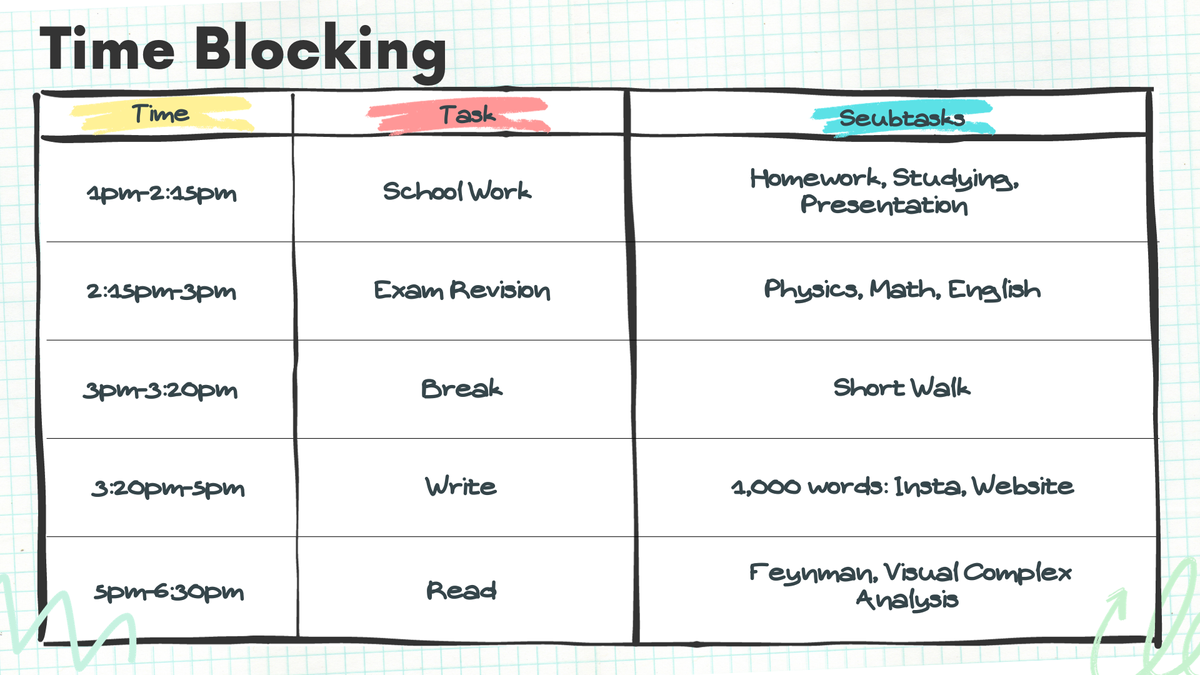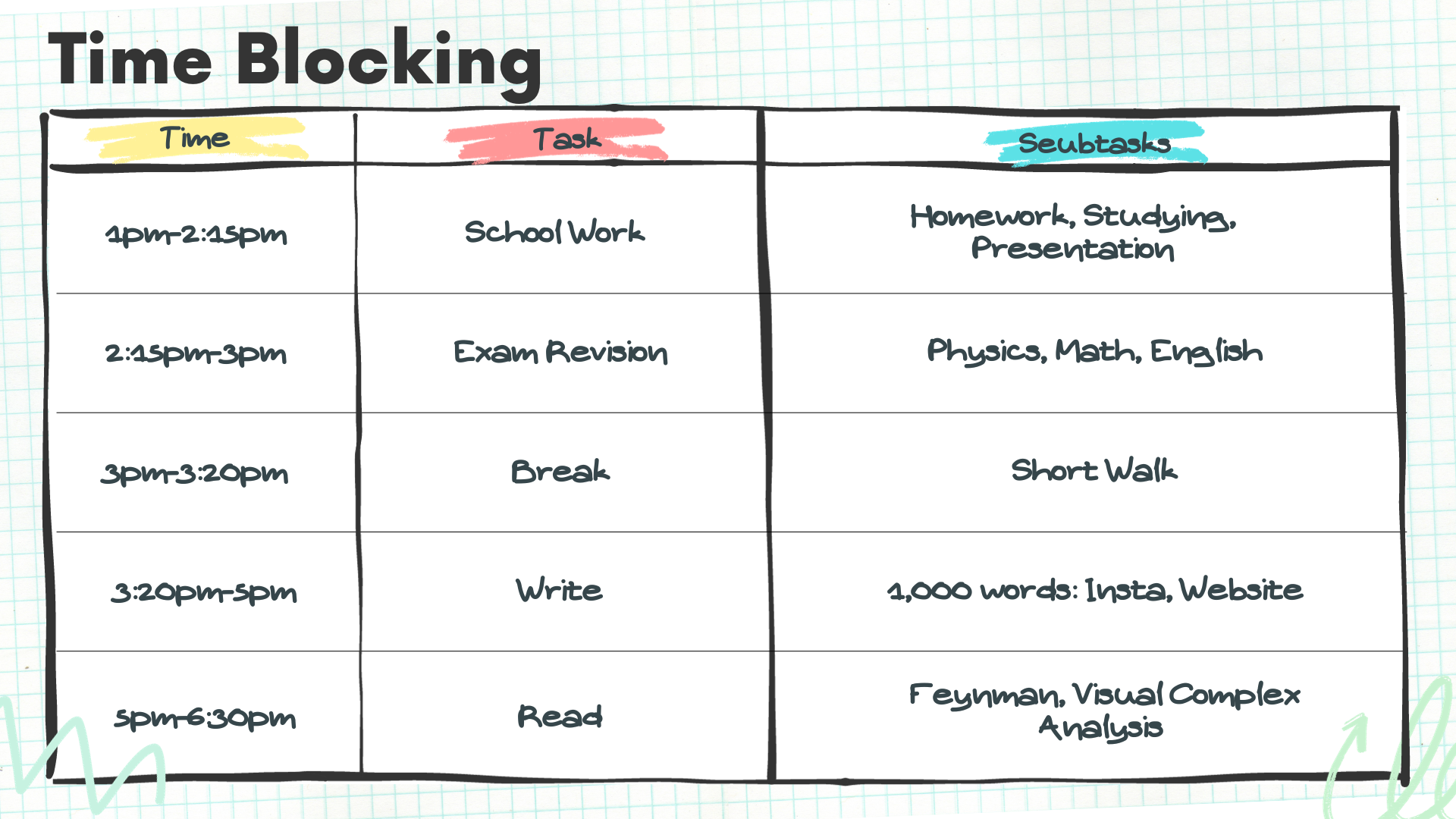Best technique for studying Physics

👋 Hey Friends,
Welcome back to the 30-Day Productivity Challenge by the famous YouTuber, former doctor and now writer Ali Abdaal.
When it comes to studying any subject, especially physics, it is challenging to get ourselves to do it. We tend to procrastinate or be worried because we think that we will not fulfil our expectations.
We have already talked about how to beat the enemy of productivity and how to work most efficiently with the time you have. Today, we will combine these methods with the concept of time blocking to find the best way to study physics.
🗓️ Time Blocking
When I am studying physics, the best method I use to keep studying and not get bored is to set specific time blocks during my day. Instead of just getting home and thinking about what I want to be doing, I plan my day with the things that are most important to me. This means that I intentionally make time for the things that matter to me. If we remember the definition of productivity, this is undoubtedly what we want:
Productivity means doing more of the things that matter to you while you enjoy the journey along the way.
To satisfy this idea, I time-block my day with the things I want to be doing. Hence, when I procrastinate studying for an exam or out of self-interest, I look at my calendar and see what I intend to do. It is far more unlikely that I will not do the thing that I made time for than if I hadn’t intentionally structured my day around it.
A time-blocking day could look something like this:

What can we see in this figure? We can see that I have divided my afternoon into different time blocks which I all assessed a certain main task to. With each task comes several subtasks which further describe what I want to be doing in this sub-blog of my time. This is important because we may find ourselves having the following concerns:
😕 Concern: “Time Blocking is too restrictive”
The solution to this can be seen from what we have found out:
✅Solution: Categorise Tasks by Type Instead of creating individual blocks for each specific task, organise your workflow by creating blocks based on task types. For example, have a designated block for 'creative work' or another for 'administrative tasks'. This approach helps streamline your workflow and provides a more organised structure.
By planning our time before working on the things, we achieve clarity about what’s ahead of us, and then we can just start working.
It is important to realise that it helps enormously when we create an environment where it is easy to actually start studying. This leads to the idea of reducing the friction which we will get into but for now, remember that by planning ahead you drastically increase the likelihood of working on the specific tasks!
If you have enjoyed this episode of FRIDAYS FINDINGS and you don't want to miss out on any future episodes consider subscribing for FREE.
Thanks again and I'll see you soon.
Victor (@observethecosmos)
🎟 Want to advertise on Fridays Findings? → Send an E-Mail
Check out some of my social media pages to learn more about math, science and astronomy:
🎬:Youtube